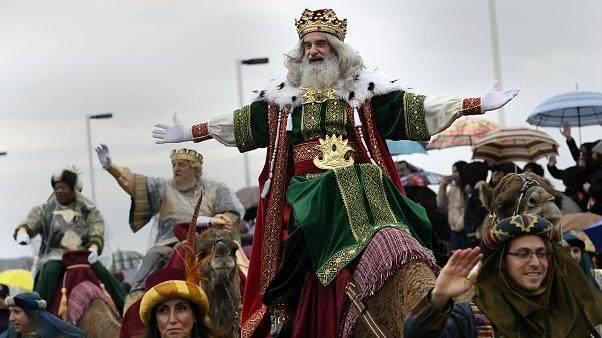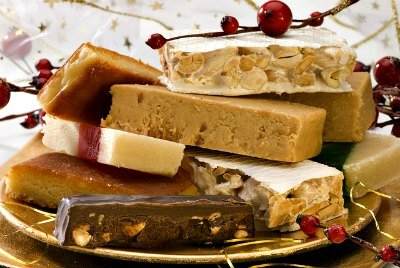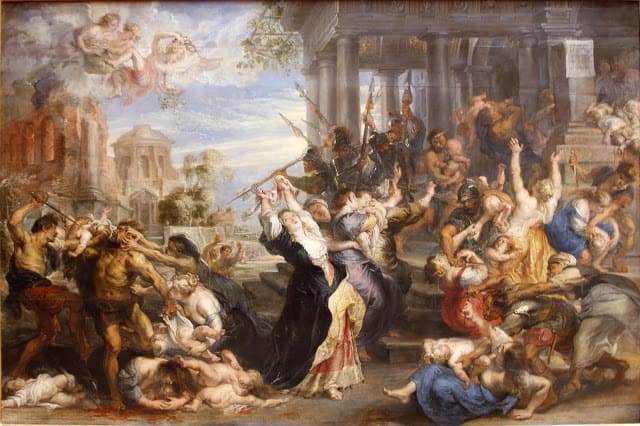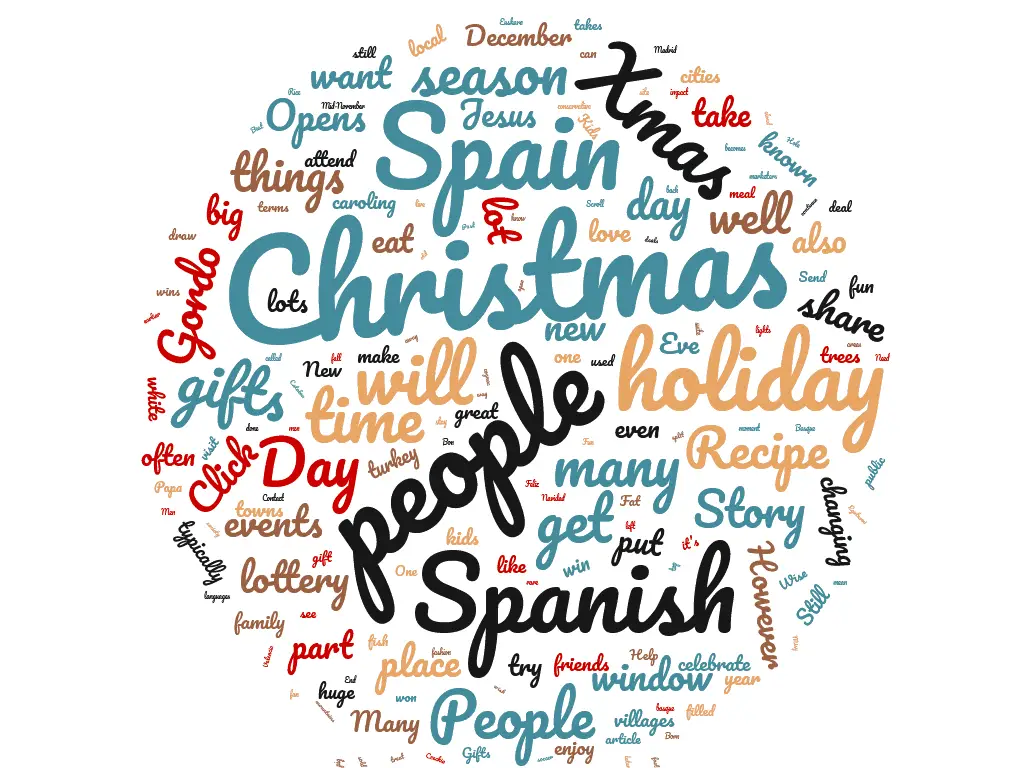Spain is an old country that is filled with rich traditions. This nation has many holidays and celebrations and Christmas is one of the biggest of all time.
Most Spaniards love the Christmas holiday. There is a lot of activities and things to do during the Christmas season.
Keep reading to discover why Christmas is a big deal in Spain and why so many people really enjoy this outstanding time of the year.
An Overview of Christmas in Spain
The holiday season in Spain starts in November. Traditionally, Spanish people did not make Christmas a huge commercial holiday like most other nations.
However, as Spanish society becomes more materialistic, commercial marketers are pushing their Christmas products at an earlier time.
Mid-November is the time when Spain starts to prepare for Christmas.
The major Spanish cities such as Madrid, Barcelona, and Valencia will start to put up lights as early as November.
Smaller metropolitan areas, towns, and villages will also follow suite. They will put up their own Christmas displays and decorations.
People will also start to purchase gifts around this time as well.
While Christmas is becoming more of a commercial holiday in Spain, people are still more traditional about how they approach this day than other parts of Europe.
Spanish people will start the holidays on December 22.
This is the time that children are released for winter break and many businesses will shut down.
Still, a lot of businesses remain open because they want to make more money during this busy time of the year.
From December 22 to January 6 the Christmas festivities will commence.
The Spanish people also celebrate the Epiphany or the 12 days of Christmas.
While some people see this as a separate celebration, it is celebrated as a part of the holidays.
Epiphany represents the time when the Three Wisemen from the Bible took a trip to see Jesus when he was born.
Spanish Christmas Customs
Spanish kids refer to Santa Claus as Papa Noel which translates to Father Christmas. They write him letters and try to be on their best behavior to get gifts.
The people of Spain try to take a traditional approach to Christmas. Once again, this mindset is changing since things are becoming more commercialized.
Still, they make it a point to go to church and listen to church sermons about the holiday season. Midnight Mass is attended by Spanish people on Christmas Eve.
They also pay tribute to Jesus Christ during this holiday.
Many Spanish people are Christian believers.
While Christianity is the reason for this holiday, there are plenty of people who do not celebrate Christmas for this reason. For them, Christmas is more of a time to gather with friends and family.
Christmas pageants and plays are put on and the nativity scene is put on full display. People all over the country prepare to go caroling on Christmas Eve. This day is known as Nochebuena.
Before Christmas Eve arrives, people try to go around caroling as well to get money for their efforts. Some people enjoy caroling because it’s fun.
People in Spain do put up trees and they do have the custom of hanging stockings. Gifts under trees are not that big of a deal but people still appreciate them.
Some families will want their trees to be filled with presents and many kids want to have lots of gadgets, toys and other great items for Christmas.
Kids get a few gifts on Christmas Day because they wait until the Epiphany to get more.
However, more kids are getting a lot more presents on Christmas Day and they will get more gifts during the Epiphany.

People will visit their family and friends during the holidays in Spain and they will visit the local markets and malls to get special gifts and deals for Christmas. It will be a fun time for many.
Lots of parades and public Christmas events are given throughout the cities.
People love to attend soccer games and matches during the Christmas season. Parades, festivals and lots of local events take place as well.
El Gordo: The Fat One or Super Lottery for the Holidays
El Gordo is Spain’s biggest lottery. As a matter of fact, this even is so big that it is now being participated in by people all over the world. El Gordo is a huge lottery drawing that is a national event in Spain.
It takes place on December 23 and people from all over the nation tune in to watch. This lottery show features kid choirs who sing out the winning numbers.
El Gordo is so special because everybody wins. You might only win $1 or $2 but you are guaranteed to win something.
Whole entire neighborhoods, towns, communities, and villages have been known to participate in this dynamic lottery.
A few people in small Spanish towns have won the big jackpot in El Gordo. Oftentimes, this jackpot is split between thousands of people.
In some cases, it is won by a single participant. The jackpots have been known to reach hundreds of millions.
The El Gordo lottery draw is huge even and people from all walks of life participate. They enjoy taking the chance to win big.
Once again, there are no losers in this lottery draw but the person who wins the grand prize is the biggest winner out the bunch.
Spanish Foods During the Holiday Season
Spanish people eat turkey as the main Christmas meal. However, their turkey is prepared with truffles or mushrooms stuffed inside of the bird.
Still, turkey is not the most popular Christmas food for all the Spanish people. People in Spain love to eat seafood during the holiday meal.
They eat different types of fish such as crab, lobster and fresh fish that are sold in their markets.
Lamb, pig, and prawn (shrimp dish) are consumed as well. Galets (pasta with mince meat) are eaten with hearty soups and Turron is popular as well.
People eat large meals with their family and friends.

They also drink lots of wine and other refreshing drinks. Roscon de Reyes and marzipan are two popular desserts that most people like during the holidays.
Spanish Christmas Culture
The major cities in Spain have lots of local and citywide events. The people can attend special walks, runs and holiday promotions during the Christmas season.
There are many concerts and public events. People can attend Christmas activities, ice skating, and Christmas time fun. Local villages have Papa Noel charities.
Day of the Innocent Saints takes place on December 28. On this day, people try to trick each other into believing made up stories.
This unofficial holiday is similar to April’s Fools Day in America and it too is celebrated as a part of the Christmas season in Spain.

New Year’s Eve is known as the Old Night. On this day, Spaniards eat 12 grapes until the stroke of the clock at midnight.
This day too (as well as New Years Day) is a part of the ongoing Christmas holiday season even though it is a stand-alone holiday.
Here is another word about Epiphany. Many Spanish people get a lot of gifts during this 12-day holiday.
However, many gifts are opened on Christmas Day. Gifts, cognac and even a bucket of water are left for the Three Wise men during Epiphany as a part of this holiday celebration.
January 5 is when large processions take place. There are floats and other special events that take place on this day.
On January 6 is the day when people get more gifts. This holiday is a great time of the year. Many people like this holiday because they love gifts and other great events.
Snow doesn’t fall a lot in Spain. This is one element of the Christmas season that does not take place within this part of the world. A white Christmas is a rare event in Spain.
Unless people live in the mountains, they will not have a white Christmas in Spain. This causes many people to become unhappy.
People want a white Christmas and they rarely get this treat on Christmas Day.
Christmas in Spain is Evolving
Some things stay the same in Spain, but some things change. Christmas is a changing holiday in Spain. Many of the people want it to remain the same.
However, commercialism is changing the way that a lot of things are done.
The Christmas holiday season in 2019 is expected to be one of the busiest and most commercial celebrations in Spanish history.
This trend is expected to continue well into the future.
The changing culture and mindset of young people are transforming Christmas into a more commercial celebration.
They want to celebrate Christmas in the same fashion as many other nations.
This trend is going to impact the culture, but it will not do away with time-honored traditions.
Christmas has and will always be a special and conservative moment for Spanish people.
In Spanish Merry Christmas is called ‘Feliz Navidad’, in Catalan, it’s ‘Bon Nadal’, in Galician ‘Bo Nadal’ and in Basque (or Euskara in basque) ‘Eguberri on’. It is interesting to know how people wish Happy or Merry Christmas in other languages.
Learn More With the Help of Video
Main Points About Christmas in Spain
- Christmas in Spain is not a commercial enterprise. It is a time of reflection, praise and thanksgiving. It is celebrated on the 6th of January.
- From the first week of December, elaborate Christmas decorations and beautiful Christmas lights are seen going all over the place.
- Until the second half of December Christmas trees are not seen. In some homes, nativity scenes (Belenes) are put up.
- Santa Claus does not feature in Spanish Christmas. Presents are delivered to children on the 6th day of January.
- One of the most popular events at Christmas time is the Loteria de Navidad (the lottery) it is the biggest in the world.
Conclusion
After having stuffed turkey on Christmas Eve, families go to Midnight Mass on Christmas in Spain.
After church, there will be people walking the streets carrying torches and playing music, after an old tradition.
Earlier in the day, the children might have been around their neighborhood singing Christmas carols and hoping to get some money.
Sweets and cookies are of course a must-have in Spain as well at Christmas time.
Word Cloud for Christmas in Spain
The following is a collection of the most used terms in this article on Christmas in Spain. This should help in recalling related terms as used in this article at a later stage for you.




